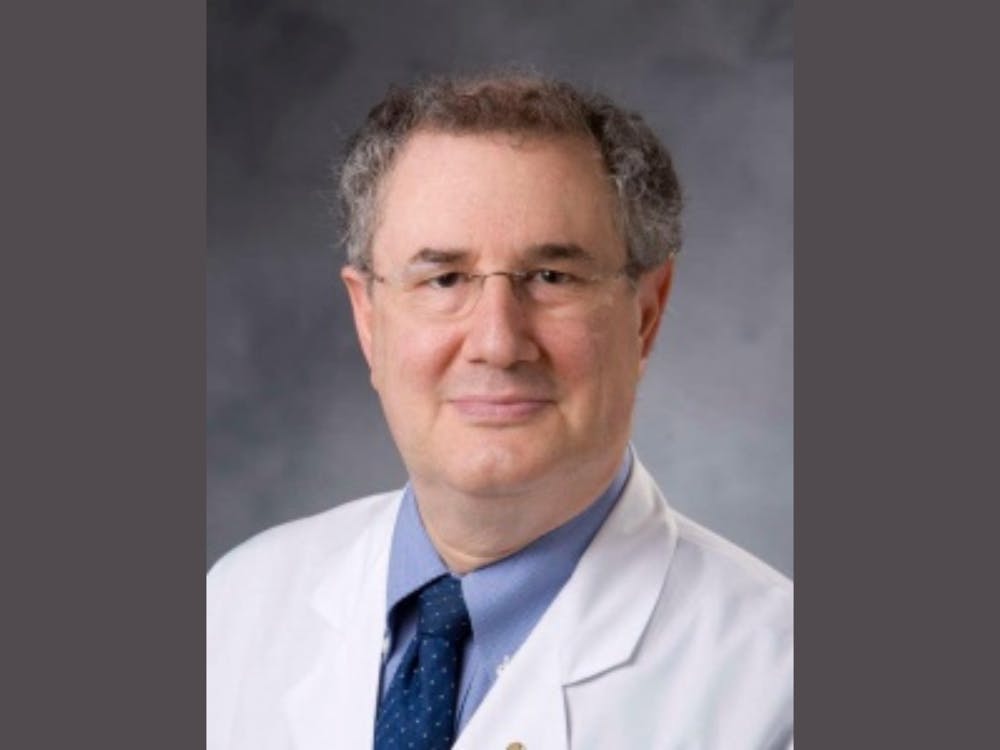Mark Feinglos, the former chief of the Division of Endocrinology, Metabolism, and Nutrition in the Department of Medicine in the Duke School of Medicine, an esteemed mineralogist and a beloved member of the community, died March 14 at the age of 72.
Feinglos was born in Syracuse, N.Y., and graduated with his medical degree from McGill University. He then completed his residency at Duke, moving to Durham from Canada in 1972. Whereas many medical professionals move on from their initial place of residency, Feinglos and his family appreciated Duke so much, and vice versa, that he remained for nearly 50 years.
“Mark was an excellent mentor. He willingly took the time to provide career advice and was unselfish in guiding all types of learners from new endocrine faculty to nursing students in how to be a better clinician and researcher,” said Kathryn Evans Kreider, associate professor in the Duke School of Nursing and lead faculty for the School’s endocrinology specialty.
While at Duke, Feinglos studied Type 2 diabetes mellitus extensively. Under Feinglos’ lead, the endocrinology division’s faculty doubled in size and its fellowship program attained national recognition. In particular, Feinglos focused on dietary therapy to maintain stable glucose levels, testing different medications and chemical agents.
“[He] was an excellent and patient teacher. He enjoyed having trainees work with him in the clinic and he never seemed to tire of teaching. He was always quick to respond to an email or a request, a rare quality these days,” Kreider said.
As a result of his tenacity and dedication to his research, Feinglos quickly rose through the ranks of the hospital, culminating in his tenure as the chief of the division of endocrinology, metabolism and nutrition in the Department of Medicine from 2000 to 2014.
Beginning in 1978, Feinglos taught at the Duke School of Medicine in the psychiatry, behavioral sciences and pathology departments—as well as in the medicine, endocrinology, metabolism and nutrition department—and he enjoyed a four-year stint in the Nicholas School of the Environment in the earth and ocean sciences department.
Feinglos made a notable impression in the lives of his patients, serving some for more than 30 years. According to Diana McNeill—professor of medicine and assistant professor in obstetrics and gynecology—his warmth, sense of humor and ability to consider those he assisted as more than simply “diabetics” endeared him to patients.
A man of many interests
In addition to the strides he made in endocrinology, Feinglos provided myriad insights into a twin passion: mineralogy. Feinglos majored in geology as an undergraduate at McGill and possessed one of the most impressive collections of different mineral specimens in the world, with a particular focus on the Tsumeb mine located in Namibia. Many who knew Feinglos through his presence in mineralogy didn’t know about his work in medicine, thinking he had studied solely mineralogy.
Oftentimes, scientists sent Feinglos minerals they had found for examination but could not identify. Feinglos identified many novel minerals and even named one gemstone Dukeite, the first University in the United States to receive such a distinction. Likewise, the Natural History Museum of London labeled “Feinglosite” in his honor. In 2003, Feinglos received the second William Pinch medal for his pursuit of discovery.
Feinglos also was a top supporter of Duke athletics, attending nearly every home game for football and men’s basketball and holding four season tickets to both.
“Mark is the singular reason that my sons bleed such a deep color of Duke blue,” said Tom Weber, professor of medicine and member of the Duke Cancer Institute. “He so generously supplied us with his basketball tickets to Cameron Indoor over the past three decades, helping to expose my family to the excellence and pride that is Duke basketball.”
Weber added that he will terribly miss he and Feinglos’ Tuesday conversations in between clinic sessions, where the two excitedly chatted about Duke sports, trashed Carolina nation and talked about life.
Feinglos is survived by his wife Susan Totten and his two children, Daniel Feinglos and Rebecca Feinglos Planchard. The family will hold a public funeral at a later date.
Get The Chronicle straight to your inbox
Sign up for our weekly newsletter. Cancel at any time.

